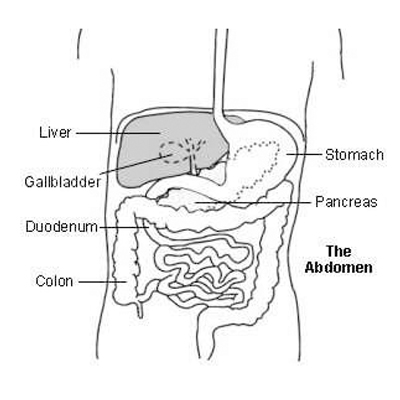Acute Pancreatitis
Acute Pancreatitis
Acute pancreatitis means inflammation of the pancreas that develops quickly. The main symptom is tummy (abdominal) pain. It usually settles in a few days but sometimes it becomes severe and very serious. The most common causes of acute pancreatitis are gallstones and drinking a lot of alcohol.
What is the pancreas?
The pancreas is in the upper tummy (abdomen) and lies behind the stomach and guts (intestines). It makes a fluid that contains chemicals (enzymes) which are needed to digest food. The enzymes are made in the pancreatic cells and are passed into tiny tubes (ducts). These ducts join together like branches of a tree to form the main pancreatic duct. This drains the enzyme-rich fluid into the part of the gut just after the stomach (called the duodenum). The enzymes are in an inactive form in the pancreas (otherwise they would digest the pancreas). They are 'activated' in the duodenum to digest food.
Groups of special cells called 'islets of Langerhans' are scattered throughout the pancreas. These cells make the hormones insulin and glucagon. The hormones are passed (secreted) directly into the bloodstream to control the blood sugar level.
The bile duct carries bile from the liver and gallbladder. This joins the pancreatic duct just before it opens into the duodenum. Bile also passes into the duodenum and helps to digest food.
Diagram showing the liver

Diagram showing detail around the pancreas

What is pancreatitis?
Pancreatitis means inflammation of the pancreas. There are two types:
Acute pancreatitis has become more common in recent years. One of the reasons for this is that there has been an increase in alcohol consumption recently - in particular, binge drinking.
Causes of acute pancreatitis
Gallstones or alcohol cause more than 8 in 10 cases. Other causes are rare.
Uncommon causes - include the following: